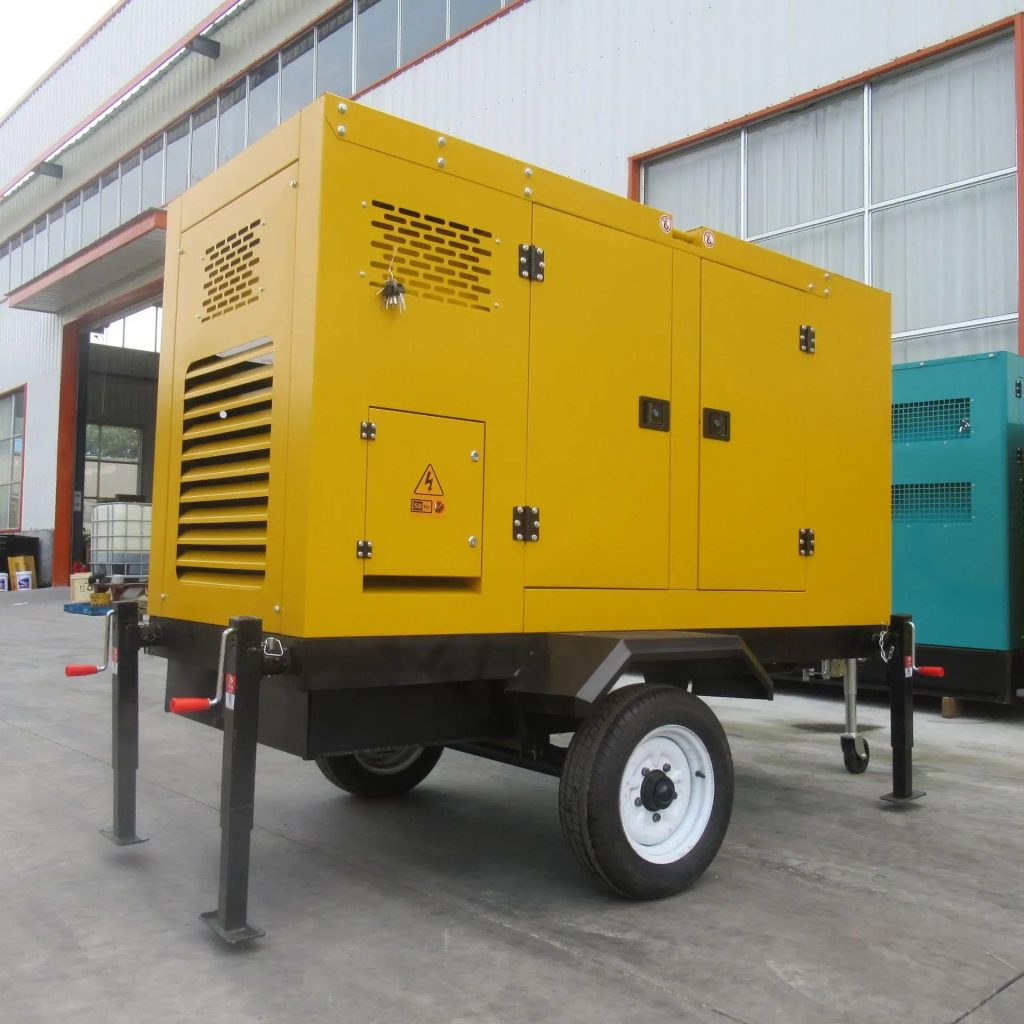Ensuring Quality Assurance with Diesel Generators

Introduction
Diesel generators play a crucial role in providing backup power in various industries and settings. They are relied upon to ensure continuous operation during power outages and emergencies. As such, it is essential to maintain the quality and reliability of diesel generators to guarantee optimal performance when needed. Quality assurance practices are vital in ensuring that diesel generators are operating efficiently and effectively. Going Here will explore the importance of quality assurance in diesel generators and provide insights into how to maintain and enhance their performance.
Overview of Diesel Generators

Diesel generators are essential power generation equipment that utilizes diesel fuel to produce electricity. They are commonly used in industries, commercial buildings, residential areas, hospitals, data centers, and other critical facilities where uninterrupted power supply is essential. Diesel generators consist of an engine, alternator, fuel system, cooling system, exhaust system, and control panel. The engine, typically a diesel engine, drives the alternator to generate electricity.
Diesel generators are preferred for their reliability, durability, and efficiency. They can provide backup power for extended periods and are capable of handling heavy loads. Diesel fuel is readily available and has a higher energy density compared to other fuels, making diesel generators a popular choice for standby power applications.
Importance of Quality Assurance in Diesel Generators
Quality assurance is a systematic process that ensures that products or services meet specified requirements and standards. In the case of diesel generators, quality assurance plays a vital role in ensuring that these power generation units perform optimally and reliably when needed. The following are key reasons why quality assurance is essential for diesel generators:
1. Reliability: Quality assurance practices help identify and address potential issues or defects in diesel generators before they lead to failures or breakdowns. By ensuring that components are manufactured to high standards and undergo rigorous testing, the reliability of diesel generators can be significantly improved.
2. Safety: Diesel generators operate using combustible fuels and produce exhaust gases that can be harmful if not properly managed. Quality assurance processes help ensure that diesel generators meet safety standards and regulations to protect both equipment operators and the surrounding environment.
3. Performance: Quality assurance measures can enhance the performance of diesel generators by optimizing fuel efficiency, reducing emissions, and increasing power output. By maintaining quality components and conducting regular maintenance, the overall performance of diesel generators can be improved.
4. Cost-effectiveness: Quality assurance practices can help prevent unexpected downtime, repairs, and replacements, which can be costly for businesses and organizations. By investing in quality assurance for diesel generators, companies can avoid potential financial losses associated with equipment failures.
5. Compliance: Diesel generators are subject to various regulations and standards set by regulatory bodies and industry organizations. Quality assurance ensures that diesel generators comply with these requirements, avoiding penalties and legal issues.
Maintaining Quality Assurance in Diesel Generators
To ensure the quality and reliability of diesel generators, it is essential to implement a comprehensive quality assurance program. The following are key strategies and best practices for maintaining quality assurance in diesel generators:
1. Regular Maintenance: Scheduled maintenance is crucial for diesel generators to operate efficiently and reliably. Regular inspections, testing, and servicing of components such as filters, fluids, belts, and batteries help prevent unexpected failures and ensure optimal performance.
2. Component Testing: Components such as fuel injectors, turbochargers, alternators, and control systems should undergo regular testing to identify any potential issues or malfunctions. Testing can help detect problems early and prevent them from escalating into major failures.
3. Fuel Quality: Diesel fuel quality is critical for the performance of diesel generators. Contaminated or degraded fuel can clog filters, damage injectors, and reduce engine efficiency. Regular fuel testing and treatment are essential to maintain fuel quality and prevent issues.
4. Environmental Conditions: Diesel generators are often exposed to harsh environmental conditions, such as extreme temperatures, humidity, and dust. Proper ventilation, cooling, and protection from the elements are necessary to ensure the longevity and performance of diesel generators.
5. Training and Certification: Proper training and certification of personnel responsible for operating and maintaining diesel generators are essential for quality assurance. Trained technicians are better equipped to identify issues, perform maintenance tasks, and ensure compliance with safety standards.
6. Monitoring and Remote Diagnostics: Implementing monitoring systems and remote diagnostics capabilities can help track the performance of diesel generators in real-time. By monitoring key parameters such as fuel consumption, temperature, and load, operators can identify potential issues early and take corrective actions.
7. Documentation and Record-Keeping: Maintaining detailed records of maintenance activities, inspections, repairs, and component replacements is essential for quality assurance. Documentation helps track the history of diesel generators, identify trends, and plan future maintenance tasks.
8. Supplier Quality Management: Working with reputable suppliers and manufacturers of diesel generator components is crucial for ensuring quality assurance. Selecting high-quality parts and materials from trusted suppliers can enhance the reliability and performance of diesel generators.
Conclusion
Quality assurance is paramount for ensuring the reliability, safety, performance, and compliance of diesel generators. By implementing comprehensive quality assurance practices, businesses and organizations can maintain the quality and efficiency of their backup power systems. Regular maintenance, component testing, fuel quality management, environmental considerations, training, monitoring, documentation, and supplier quality management are key aspects of maintaining quality assurance in diesel generators.
Investing in quality assurance for diesel generators not only enhances their performance but also reduces the risk of downtime, repairs, and compliance issues. By prioritizing quality assurance, businesses can ensure that their critical operations remain uninterrupted during power outages and emergencies. Diesel generators will continue to be a vital asset for powering essential infrastructure and facilities, and maintaining their quality is essential for their long-term reliability and effectiveness.
